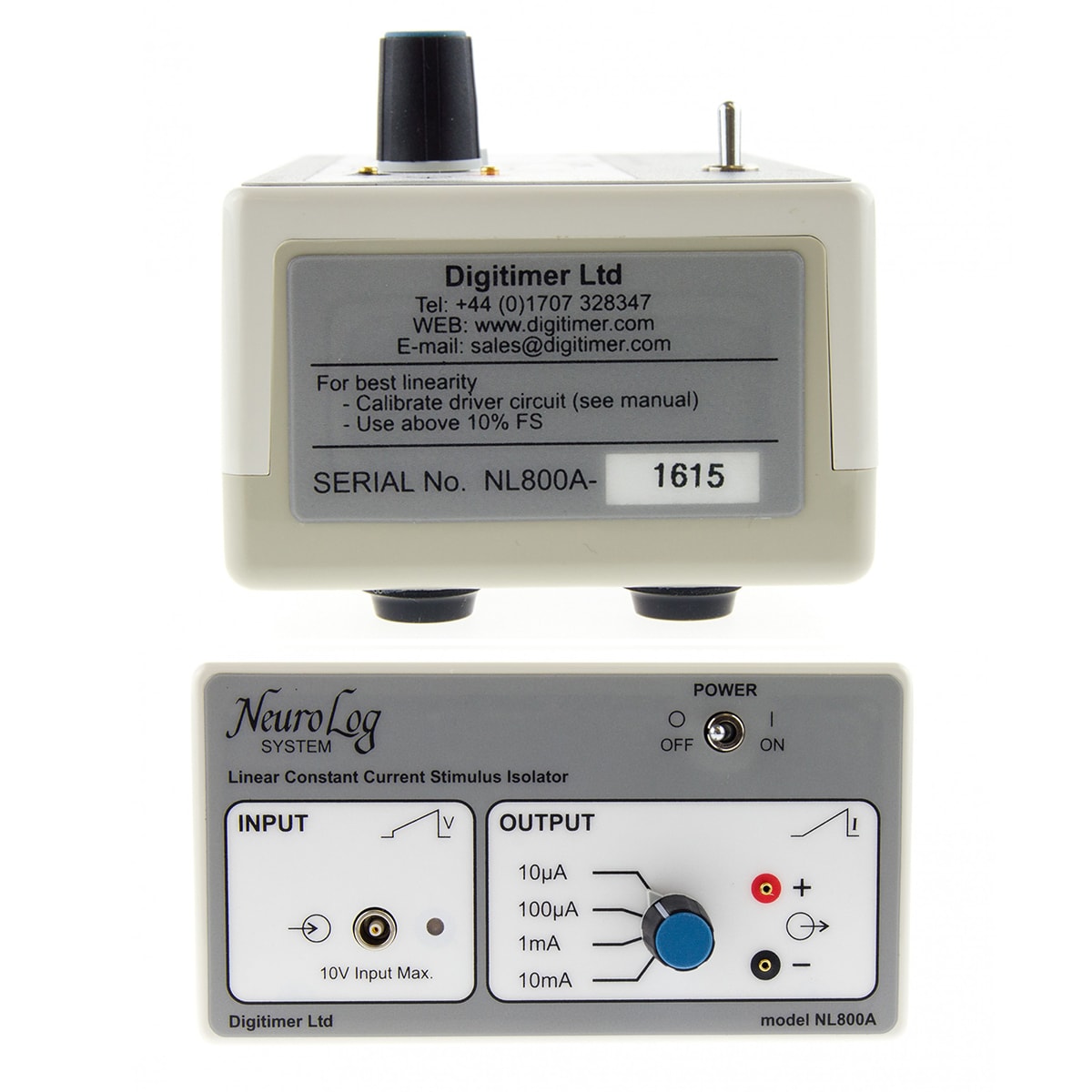The NL800A Stimulus isolator is a compact source of constant current stimulation, however, it requires an input voltage (provided by the NL510 Pulse Buffer or NL512 Biphasic Buffer) to control the output pulse duration and amplitude. As each channel of stimulation requires no more than one module bay to be used, it us possible for the NeuroLog system to become a versatile multi-channel stimulator. If repetitive stimulation is required, the NeuroLog System Pulse/Period Generator and Digital Modules can take care of this.
NL510 – Pulse Buffer
The NL510 converts TTL input pulses into output pulses of 0 – 10V or input drive pulses for the NL800 Stimulus Isolator (below). Precise output amplitude control is determined by a 10 turn dial. The voltage output can make this a suitable stimulation device for preparations which require a non-isolated, LOW voltage stimulus.

NL512 – Biphasic Buffer
The NL512 provides an interface between any biphasic signal generator and two NL800 Stimulus Isolators (below), allowing the user to generate a biphasic, constant current, isolated stimulus. Stimulus amplitude is controlled precisely by “current out for voltage in” circuitry.

NL800A – Stimulus Isolator
The NL800A is a battery powered, opto-coupled isolator (replacing the NL800), which has been designed for low noise applications such as in vitro and in vivo electrophysiology. It has a constant current output, with very high output impedance, making it suitable for stimulation through microelectrodes as well as with gross electrodes. Normally driven from the NL510A or NL512 buffer modules, its output current is either set by the 10-turn control on the NL510A, within the output range set by the switch on the NL800A or by the amplitude of the voltage waveform applied to the NL512 (or directly to the NL800A). Output pulses have the same timing as the input pulses (2 micro-seconds to 30 seconds output pulse width). The NL800A is supplied with a set of 5 GP23A batteries, a pair of 1mm output plugs and heat shrink sleeving.


